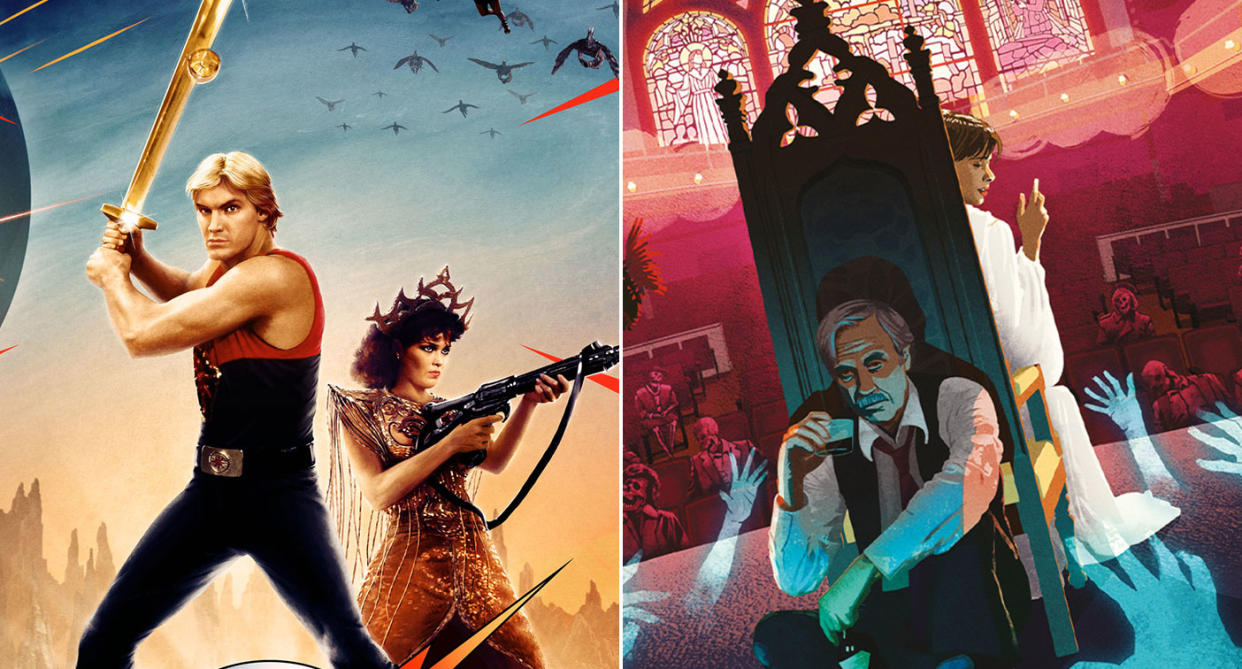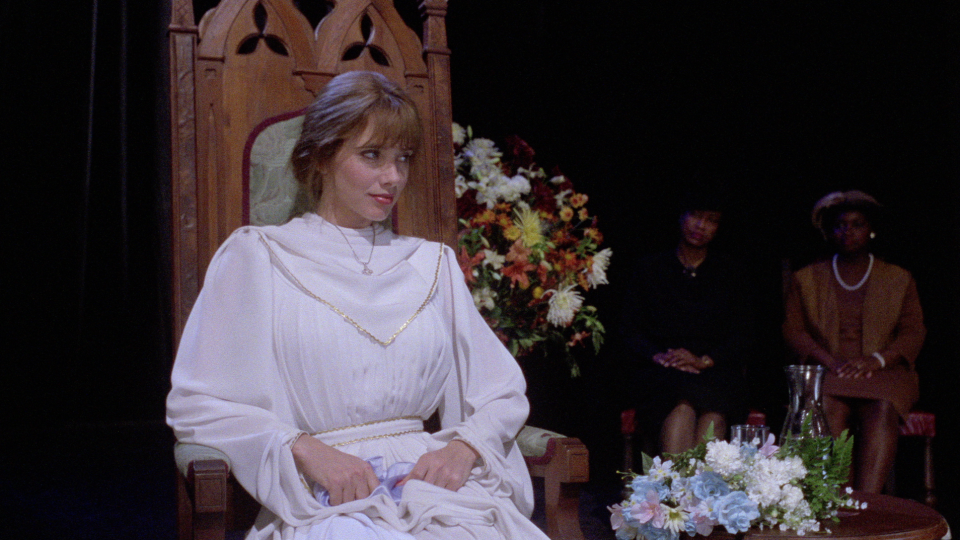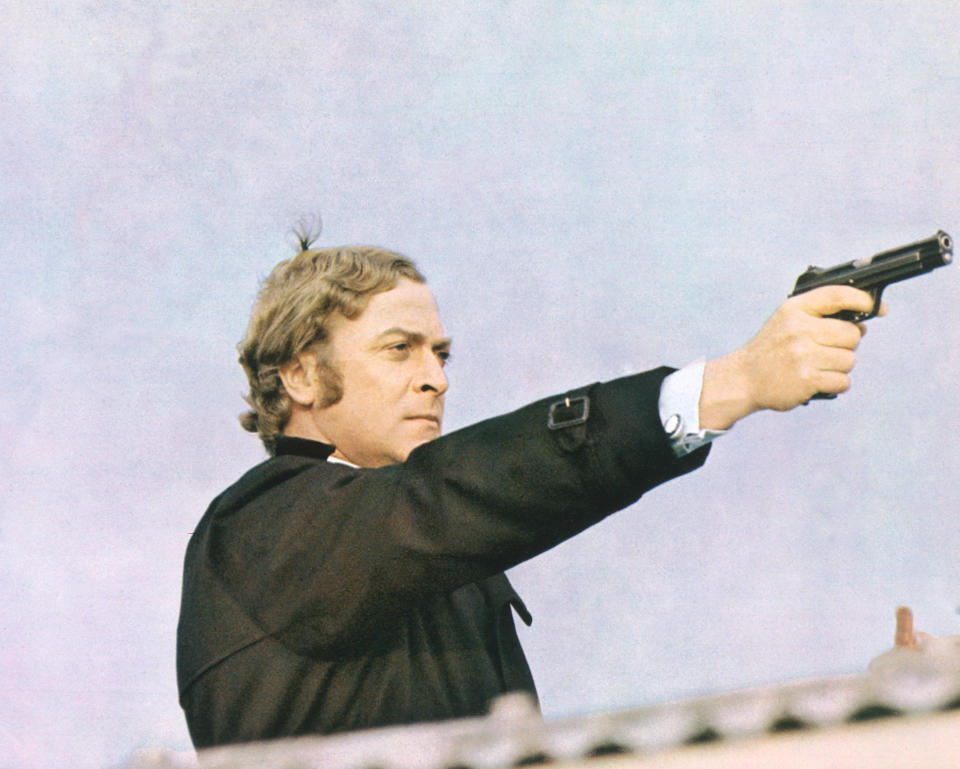Director Mike Hodges debunks 'Flash Gordon' myths and talks 'Black Rainbow' (exclusive)

At the end of the 1970s, as Hollywood desperately tried to find the next Star Wars, legendary producer Dino De Laurentiis (Hannibal, King Kong) was so convinced Flash Gordon would be a hit that he decided to start developing the sequel even before the first film began shooting.
Nic Roeg (Don’t Look Now) was already on board to helm Flash, the comic strip that George Lucas had first tried to adapt before he was thwarted and instead created his own, rather successful, space opera.
For the Gordon sequel, Roeg suggested Mike Hodges, the acclaimed Brit behind 1971’s Get Carter and cult hit The Terminal Man (1974).
“I met Dino and said ‘look, I'm totally the wrong director’,” Hodges tells Yahoo now, while promoting the rerelease of his 1989 film Black Rainbow by Arrow Films.
Read more: Sam Neill details Jurassic return
“I didn’t know Flash Gordon, I didn’t know anything about American comics, I read Beano and Dandy. Then Nic and Dino fell out and Dino, for reasons I never quite understood, decided that he wanted me to do [the first film]. I resisted…he talked me into it. I'm glad he did, because I enjoyed making it and it's given a lot of pleasure to people over the years.”

Hodges came in with pre-production in full swing. The star was Sam J Jones, a former Marine who’d been spotted on the American version of Blind Date and had signed a six-picture deal. Then, just before filming began, disaster struck.
“[Sam] went to the cinema in Leicester Square [in London] with his girlfriend and her friend,” remembers Hodges. “A bunch of skinheads set upon him and knocked him down.”
Fearing the story would emerge that their macho star was mortal, the incident was kept under wraps. “I said for God’s sake don’t let this out!” says Hodges.
Critics are divided on the movie, particularly Jones’s performance, which has been accused of being wooden. Hodges disagrees.
Read more: Explaining the hype behind Hamilton
“I think the character Flash Gordon, you know, he's not exactly the sharpest knife in the drawer. He’s innocent,” says the director. “He’s a bit like American foreign policy – they go into places, have no idea what it’s like…[don’t] understand the culture. I thought [Sam] was wonderful.”
The director did, however, have an issue when Jones had a falling out over money with De Laurentiis. Internet rumours have suggested the actor’s entire performance ended up being dubbed (by actor Peter Marinker), but Hodges puts paid to that.

“Basically, [Sam] left the film at Christmas and all the principal photography was done. This included scenes like the fight scenes and so on. You've got extraneous noises for certain elements of dialogue, but he wasn't coming back. So I got an actor, a very good one, to just impersonate his voice. It wasn't very difficult, you know, anybody on Dead Ringers would be able to do Sam’s voice for maybe five or ten minutes of dialogue.”
On its fortieth anniversary, the film remains a camp classic and is even getting another cinematic outing on 31 July. Hodges, now 87, is also celebrating the re-release of his lost 1989 movie Black Rainbow, a film that was dumped on release despite excellent reviews.
Starring Rosanna Arquette as a medium who foresees a series of murders, Jason Robards as her alcoholic father and Tom Hulce (Amadeus) as a dogged reporter, it’s a clever mix of supernatural thriller and social commentary centred around corporate corruption.

“It's very odd that it should come out in the middle of a pandemic because it's very much the subject matter of the film,” explains Hodges. “I wanted to build it around the medium because I was anxious to talk about what I could see in the future coming down the line for us all.”
Unfortunately, financial issues with the distributors torpedoed its original release. The film was dumped onto VHS soon after opening in Britain and “in the States, [Miramax] sold it off to cable channels.”
Hodges himself didn’t have any notable run-ins with then-Miramax boss Harvey Weinstein. “I heard that Rosanna came out against Harvey Weinstein saying her career had been ruined by him,” he says, but doesn’t know if that was anything to do with Black Rainbow.

Experiences like the one he had on Black Rainbow led to the director becoming increasingly cautious about the movies he made. “In the ‘80s I had a sort of a rough time with films being re-edited and things like that,” he admits. “So I became very careful about who I worked with.”
Of course, for film lovers, the fact that the writer/director of the iconic Get Carter might have made fewer films that he should is a tragedy.

“I just made [Get Carter] in white heat,” he says. “It went out… reviews were sort of mixed. And then it sort of disappeared. I didn't realise it'd gone underground.
“I was in New York three or four years after I’d finished it and I was at a restaurant,” he continues. “One customer heard that I’d made it and started falling all over the place. He couldn’t believe I’d made Get Carter.”
Mike Hodges’ supernatural chiller Black Rainbow is available on 6 July from Arrow Video.

 Yahoo Movies
Yahoo Movies 
